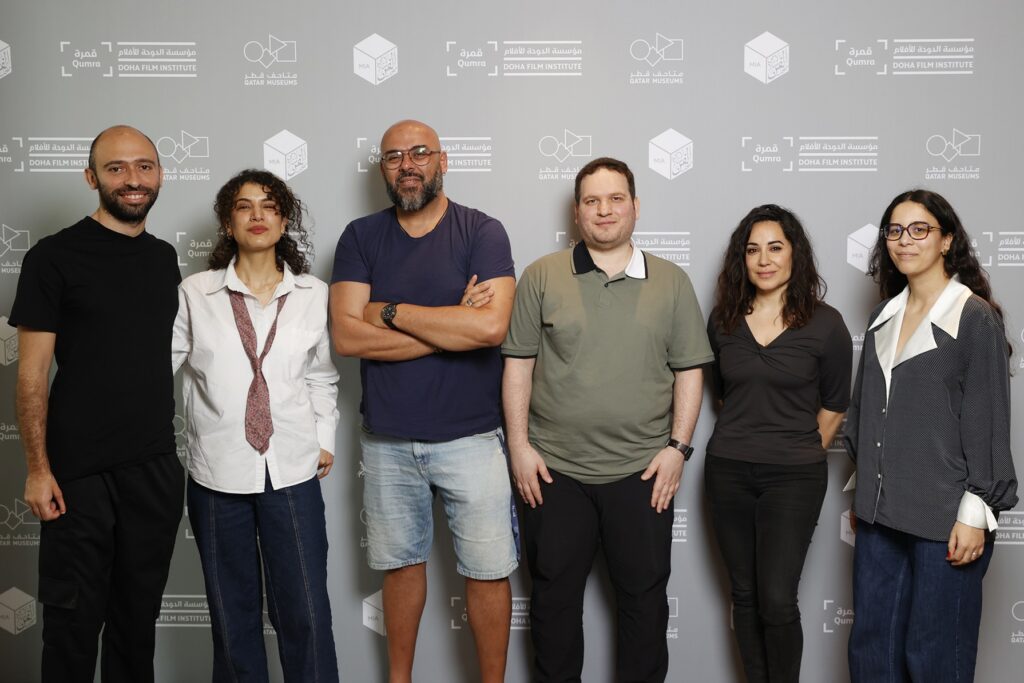Arab and international filmmakers presenting their projects at Qumra 2025, the annual talent incubator by Doha Film Institute, hailed the industry event for supporting powerful stories from script to screen. Expressing gratitude for Qumra, the emerging filmmakers said it provides a space for collaboration, community, and critical exposure.
Pablo Perez Lombardini, now in the final stages of his debut film The Reserve (Mexico, Qatar)—about a ranger protecting a natural reserve despite resistance from her community—commented: “Qumra provides us with valuable relationships for our current and future films. It makes you feel like you are part of a community and has surpassed expectations.”
Echoing this, Helene Harder, the French-German director of the documentary Fatna, a Woman Named Rachid (France, Morocco, Belgium, Qatar)—told through a 67-year-old Moroccan activist and survivor of political violence—said: “Doha Film Institute helps create buzz and knowledge around our films. I’m very grateful to be here—this beautiful organisation and the quality of people we meet here are impressive.”
“Without an audience, there’s no film. Qumra is helping us get our audience by working to gather distributors, sales agents, and broadcasters, which enables us to reach our audience internationally,” said Hamed Zolfaghari, the Iranian filmmaker blending reality with fantasy to capture the clash of past and present in his documentary, Once Upon a Time in Shiraz (Iran, France, Norway, South Korea, Qatar).
Whether tackling issues of immigration, displacement, or inequality, the emerging filmmakers all spoke of deeply personal perspectives. Emphasising the power of cinema to inspire change, they described years-long journeys of development requiring persistence, patience, and trust-building with underrepresented communities.
Madrid-born Guillermo Garcia Lopez spent three years living among the concerned community to gain their confidence ahead of shooting his feature film Sleepless City (Spain, France, Qatar), about a teenage Roma boy grappling with the threat of eviction. “When society wants to exclude a community, they take away electricity, water, but also culture,” he said. He found creative ways to involve everyone. “We were doing film workshops with the kids, making films with phones, and later had a short film in Cannes, which we consider a success for representation and visibility.”
In her short series El’Sardines (Algeria, France, KSA, Qatar), Zoulikha Tahar tells the story of Zouzou, a single bio-marine scientist in Algeria, who clashes with her parents over joining a sardine migration expedition days before her sister’s wedding. Nicolas Khoury, whose documentary Souraya Mon Amour (Lebanon, Qatar) follows the widow of Lebanese filmmaker Maroun Baghdadi, presents an intimate portrait of love and grief, offering a reprieve from the war-torn backdrop of his home nation, Lebanon.
Meanwhile, Mother of Silence (Iraq, France, Qatar) by Iraqi filmmaker Zahraa Gandhour reflects on the cultural stigma surrounding newborn girls in Iraq and the disappearance of the filmmaker’s childhood friend, Noor. “This project has been through Qumra before, during the development phase. I saw the same experts two or three years ago and again now, which was great as they were familiar with the project. It’s a very personal story about our feelings toward our mothers and how we express them,” she said.
Roqia (Algeria, France, KSA), a thriller-horror by Algerian filmmaker Yanis Koussim, follows the convergence of two lives in 1993—one touched by amnesia and another by Alzheimer’s. “The film has layers that can speak to every kind of viewer. But as an Algerian living in Algeria in a Muslim community, I believe this film will resonate with the Muslim community,” he stated.
Under the working title Marie & Jolie (Tunisia, France, Qatar), Erige Sehiri’s second film shines a light on three Ivorian women in Tunis—a pastor, a resourceful businesswoman, and a student—who reside together in a house that doubles as a church, when the arrival of a little orphan girl upends their lives.
Feature narrative The President’s Cake (Iraq, Qatar) by Iraqi filmmaker Hasan Hadi lands on President Saddam’s birthday in 1991 Iraq, when nine-year-old Saeed is tasked with bringing a celebratory cake to school, even as others struggled to find bread to eat. He said: “I faced several challenges in highlighting an important era in Iraq. Through my film, I preserved an important part of our history. This is what cinema can do”.



















